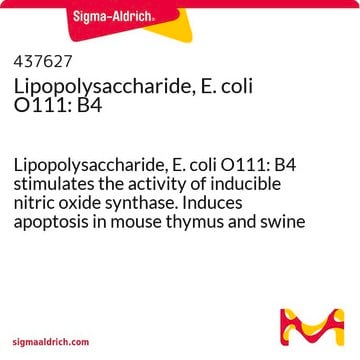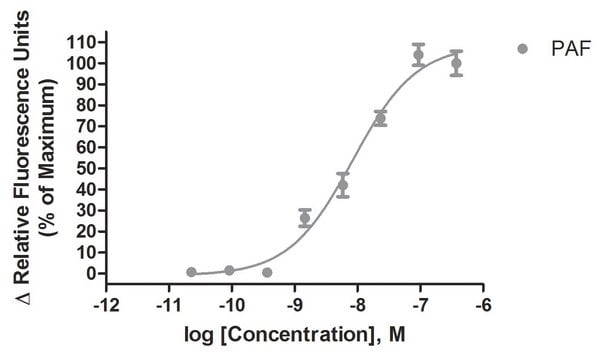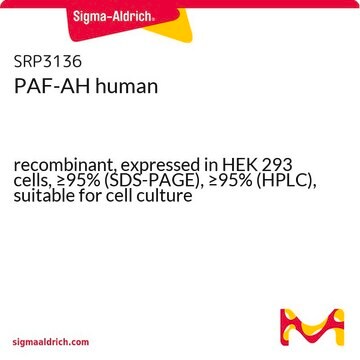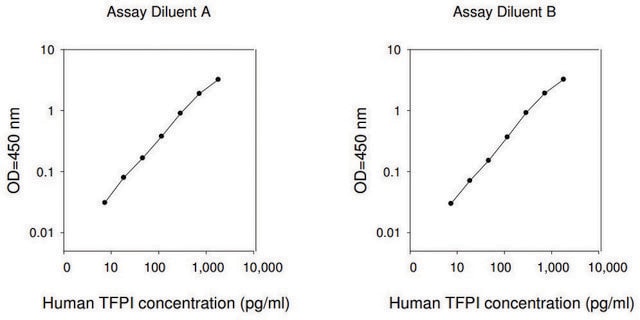511075
Platelet Activating Factor-16
≥98% (TLC), lyophilized solid, inflammation mediator, Calbiochem®
Synonym(s):
Platelet Activating Factor-16, PAF (C₁₆), 1-O-Palmityl-2-acetyl- sn-glycero-3-phosphocholine, 1-O-Hexadecyl-2-acetyl- sn-glycero-3-phosphocholine, PAF (C₁₆), 1-O-Palmityl-2-acetyl-sn-glycero-3-phosphocholine, 1-O-Hexadecyl-2-acetyl-sn-glycero-3-phosphocholine
About This Item
Recommended Products
product name
Platelet Activating Factor-16, A potent mediator of inflammation that increases vascular permeability. Activates MAP kinases and MAP kinase kinase (MEK) in CHO cells.
Quality Level
Assay
≥98% (TLC)
form
lyophilized solid
manufacturer/tradename
Calbiochem®
storage condition
OK to freeze
desiccated
color
white to off-white
solubility
ethanol: 0.5-1 mg/mL
water: soluble
shipped in
ambient
storage temp.
−20°C
InChI
1S/C26H54NO7P/c1-6-7-8-9-10-11-12-13-14-15-16-17-18-19-21-31-23-26(34-25(2)28)24-33-35(29,30)32-22-20-27(3,4)5/h26H,6-24H2,1-5H3/t26-/m1/s1
InChI key
HVAUUPRFYPCOCA-AREMUKBSSA-N
General description
Biochem/physiol Actions
MAP kinases and MAP kinase kinase (MEK)
Warning
Reconstitution
Other Notes
Mori, M., et al. 1994. Ann. N.Y. Acad. Sci.744, 107.
Pinckard, R.N., et al. 1992. J. Immunol.148, 3528.
Salari, H., et al. 1992. Biochem. Cell Biol.70, 129.
Legal Information
Storage Class Code
11 - Combustible Solids
WGK
WGK 3
Flash Point(F)
Not applicable
Flash Point(C)
Not applicable
Certificates of Analysis (COA)
Search for Certificates of Analysis (COA) by entering the products Lot/Batch Number. Lot and Batch Numbers can be found on a product’s label following the words ‘Lot’ or ‘Batch’.
Already Own This Product?
Find documentation for the products that you have recently purchased in the Document Library.
Our team of scientists has experience in all areas of research including Life Science, Material Science, Chemical Synthesis, Chromatography, Analytical and many others.
Contact Technical Service








